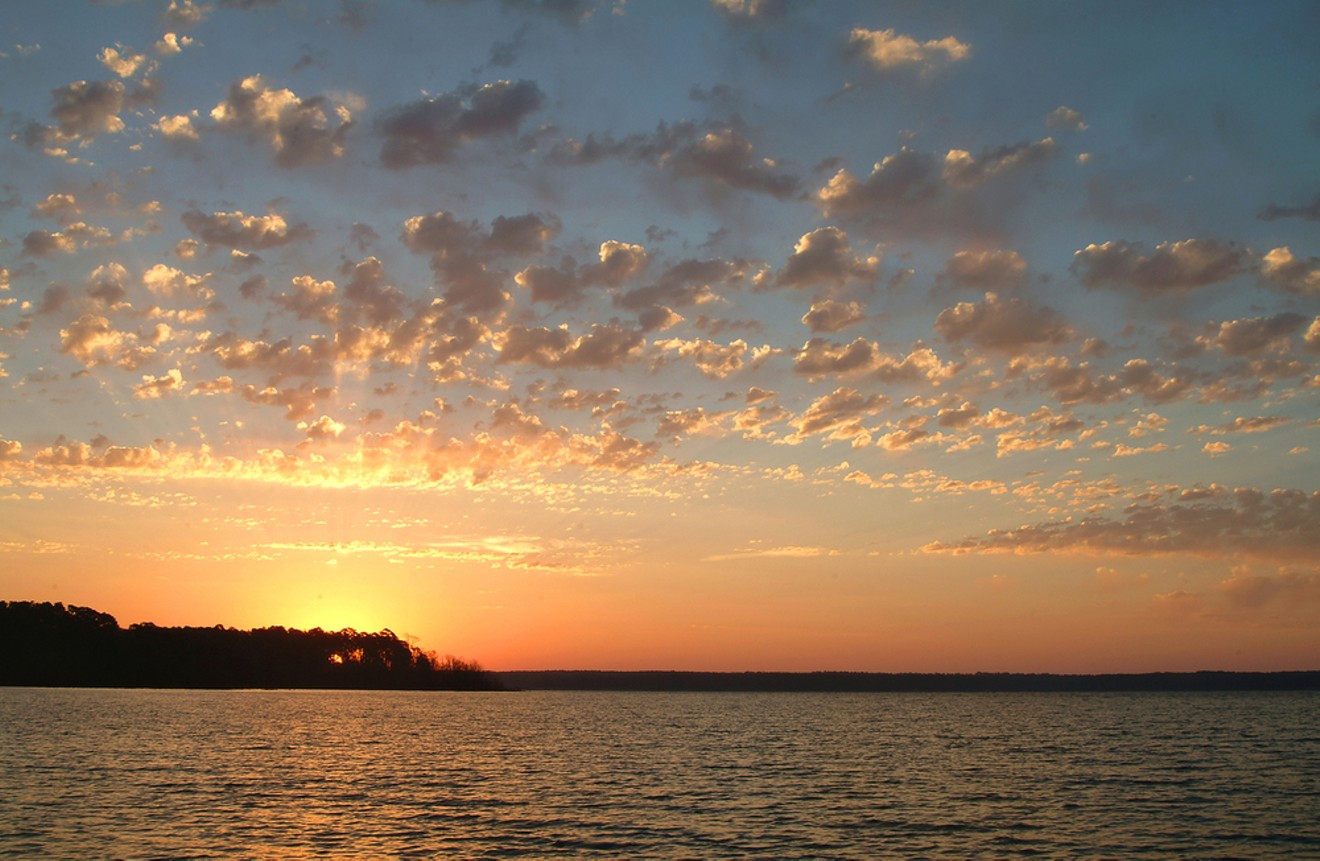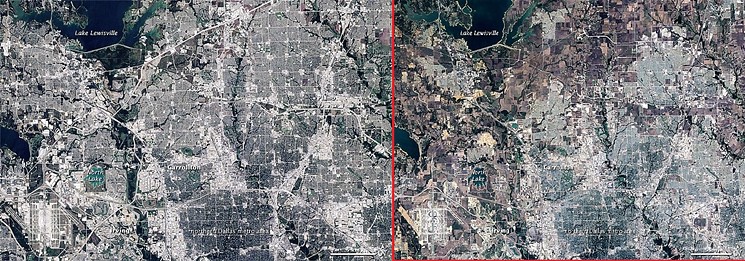No, really. Casto nailed this one. It looks like we will only have to pay the damn Sabine River Authority four times what we originally thought we had to pay it after we built Lake Fork for it. That’s way better than paying nine times more than we thought we had to pay, which is what it looked like for a long time.
Plus, listen to this: Thanks to Casto, we get to keep our $69 million that we already paid into an escrow fund to keep the river authority happy. Well, now, truth be told, we can’t actually keep our own money. We have to give it to the river authority. But that means we won’t have to give them any more money. For a while.
Hey, I’m serious. Casto scored on this one. His predecessors in the City Attorney’s Office had taken us on a tour of Texas courthouses where things got worse every time we showed up. If Dallas had lost very many more court cases in the Lake Fork rate dispute, you and I might have wound up digging sweet potatoes in Golden, Texas, under some East Texas judicial decree. (I don’t know about you, but I might have looked forward to that.)
Casto got the thing settled, so this huge escrow fund we’ve built up since 2014 can be used to pay down our water bill at Lake Fork. As part of Casto’s deal, we’re supposed to get a new fixed rate for Fork water at half what the Sabine River Authority had been trying to gouge us for.
I did mention, I believe, that Dallas built Lake Fork for the SRA. But we don’t own it. From 1981 to 2014, we had a contract to take water from the lake at a price of about $3 million a year. It was set up to be renewable in 40-year increments. But when the contract lapsed, there was no provision for negotiating a new rate.
So the SRA said it wanted $27 million a year or it would cut us off. That particular method of rate negotiation is called “I’ve got your wife in the trunk of my car.”
Previous city attorneys couldn’t budge it. The Public Utility Commission told us to start putting the money into an escrow account because we were going to lose anyway. We sued the SRA in Austin and got poured out by the trial court and then poured again by an appeals court.
We tried suing in Orange County. Why not? Here’s why: The SRA sued us back. We lost. It won. Part of that litigation is still on appeal. Fat chance.
This Lake Fork deal has been nothing but one long, serial smackdown for Dallas since the contract lapsed, and now, at least, it looks like Casto is getting us back onto to some kind of solid footing. Good on him.
This Lake Fork deal has been nothing but one long, serial smackdown for Dallas since the contract lapsed.
tweet this
But the whole thing raises a very important point. Regional water planning is maybe the most important area where the old local elite, typified by the private Dallas Citizens Council, has continued to domineer the city’s thinking as if we were still living in 1950, probably because the topic is too arcane and just too boring for the vast majority of people to grasp.
All of this business of thinking we have to build huge new reservoirs in East Texas is premised on sprawl — on continuing to grow the suburbs like a vast, global cancer that will metastasize eventually into Oklahoma. That’s why we get tied into these terrible reservoir deals. It’s why the city winds up looking like an old lady in the 19th century with her hoop skirt pulled up over her head while a bunch of naughty sweet-potato farmers laugh at us.
If it were up to us, if the only thing Dallas had to do was supply itself with water and forget about the 'burbs, we wouldn’t need new reservoirs.
“The city of Dallas' water projections are very positive,” Dallas City Council member Philip Kingston told me yesterday. “We have been extremely good, especially on the last few years, at conservation. Our per capita usage is way down.”
I found a City Council water briefing from 2014 showing that water consumers in the city of Dallas will need about 350 million gallons of water a day in 2070. At that time, the total available supply will exceed that by 125 million gallons a day. That puts our supply at 36 percent greater than demand at a date more than a half-century off. Not too shabby.
But by then our supply will be only half what current planning will need us to produce because of the amount of water we will be required by contract to supply to the suburbs, and that gets complicated.
If we cut off our suburban customers, they would argue that they helped pay for our reservoirs with the water rates they paid us all these years. Goodness knows, if the strong anti-urban bias of the Texas court system hasn’t changed by then, we’ll probably all get trucked out to the suburbs to do involuntary servitude on their golf courses after we get done picking sweet potatoes in Golden.
In the largest sense, what all of that argues is that those of us who live in cities have to start finding ways to sever the entirely disadvantageous bonds that tie us to sprawl. Water is a two-edged sword, a dire matter of supply when we need it and an even more dire threat when there’s suddenly too much of it. As Texas is learning from Hurricane Harvey in Houston, the greatest cause of flooding is concrete and rooftops, and nothing drives that plague faster than new suburbs.
Sure, the infrastructure entanglements of the last half-century, combined with an anti-urban bias in the state’s political culture, can make it feel as if cities can’t win. Our only choice, it may seem, is to shuffle along like some great chained and hobbled elephant bearing our suburban rajahs on our back.
But we are the elephant. We can rise up and shake off our burden. The great cities of Texas need to band together in a concerted urban movement and stop feeding the suburban growth that chokes us all. The environmental awareness of younger urban dwellers might enable a meeting of the minds and even a coalition with opponents to new reservoirs in rural areas.
Water is the place to start. City water for city people! The elephants must rule, not shuffle in chains.













